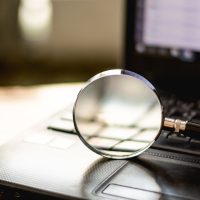The Role of Background Checks in Pre-Trial Discovery

In civil litigation, the pre-trial discovery phase is a critical period when attorneys gather evidence to build their cases. During this time, attorneys seek information that could support their claims, uncover inconsistencies in the opposing party’s narrative, or challenge the credibility of witnesses. Background checks play a vital role in this process by revealing information that may otherwise remain hidden. Engaging a licensed private investigator, such as Millennium Intelligence Agency, ensures that the background checks conducted are thorough, legally and ethically compliant, and tailored to the unique needs of each case. Contact our office for help with background checks in pre-trial discovery.
What Are Background Checks in Civil Litigation?
Background checks are investigations into an individual’s or entity’s personal, professional, and financial history. In civil litigation, these checks are often conducted to uncover:
- Criminal Records: Identifying past convictions that could impact a person’s credibility or the case outcome.
- Employment History: Verifying job claims and uncovering patterns of misconduct or fraud.
- Litigation History: Discovering past or ongoing lawsuits involving the individual or entity.
- Financial Records: Identifying bankruptcy filings, judgments, liens, or other financial distress indicators.
A comprehensive background check is invaluable for attorneys, providing critical details that may shape pre-trial strategies.
Why Are Background Checks Important in Pre-Trial Discovery?
The discovery process is designed to ensure fairness by allowing both sides access to the information needed to present their arguments. Background checks serve as a powerful tool in this stage by:
1. Assessing Witness Credibility
Whether the witness is for the plaintiff or the defense, their credibility can significantly impact the case. A background check might reveal a history of dishonesty, criminal activity, or false claims that could discredit their testimony.
2. Evaluating Opposing Parties
Understanding the background of the opposing party is essential in civil litigation. Details about their financial stability, past legal troubles, or other pertinent information may help shape settlement negotiations or trial strategies.
3. Uncovering Hidden Assets
In cases involving financial disputes, such as business litigation, background checks can uncover assets that a party may be trying to conceal, ensuring a fair resolution.
4. Preventing Surprises at Trial
Litigation is unpredictable enough without unexpected revelations about a witness or party during trial. Background checks reduce the likelihood of such surprises by equipping attorneys with a full picture of the individuals involved.
5. Supporting Due Diligence
In high-stakes cases, attorneys must ensure that every claim, fact, or assertion is backed by evidence. Background checks add an extra layer of diligence, helping attorneys prepare stronger cases.
How Private Investigators Assist with Background Checks
Licensed private investigators like Millennium Intelligence Agency are indispensable in conducting detailed and legally compliant background checks. Their expertise ensures that the information gathered is admissible in court and aligns with California’s privacy laws. Additionally, private investigators have access to databases and resources unavailable to the general public, allowing them to collect comprehensive data efficiently, analyze records for patterns or inconsistencies, and provide actionable insights for use in litigation. Moreover, investigators work discreetly to protect the confidentiality of their clients and avoid alerting the subject of the inquiry.
Ethical and Legal Considerations in Background Checks
While background checks are invaluable, they must be conducted ethically and in compliance with federal and state laws. For example, the Fair Credit Reporting Act (FCRA) governs the use of background checks for employment purposes, and California’s strict privacy regulations set clear boundaries for data collection.
Attorneys working with private investigators should ensure that the information is obtained legally and that they do not inadvertently violate any rights. Licensed investigators are well-versed in these legal parameters, minimizing risks for attorneys and their clients.
Contact Millennium Intelligence Agency for Help With Background Checks in Civil Litigation
Background checks are a cornerstone of effective pre-trial discovery in civil litigation. They provide attorneys with critical information to evaluate parties and witnesses, uncover hidden details, and strengthen their cases. Partnering with a licensed private investigator, such as Millennium Intelligence Agency, ensures that these checks are conducted with precision, legality, and professionalism.
For attorneys seeking a competitive edge in litigation, Millennium Intelligence Agency delivers the expertise and discretion needed to transform background checks into powerful tools for success. Contact us today at 213-986-9888 to learn how we can assist with your next case.
